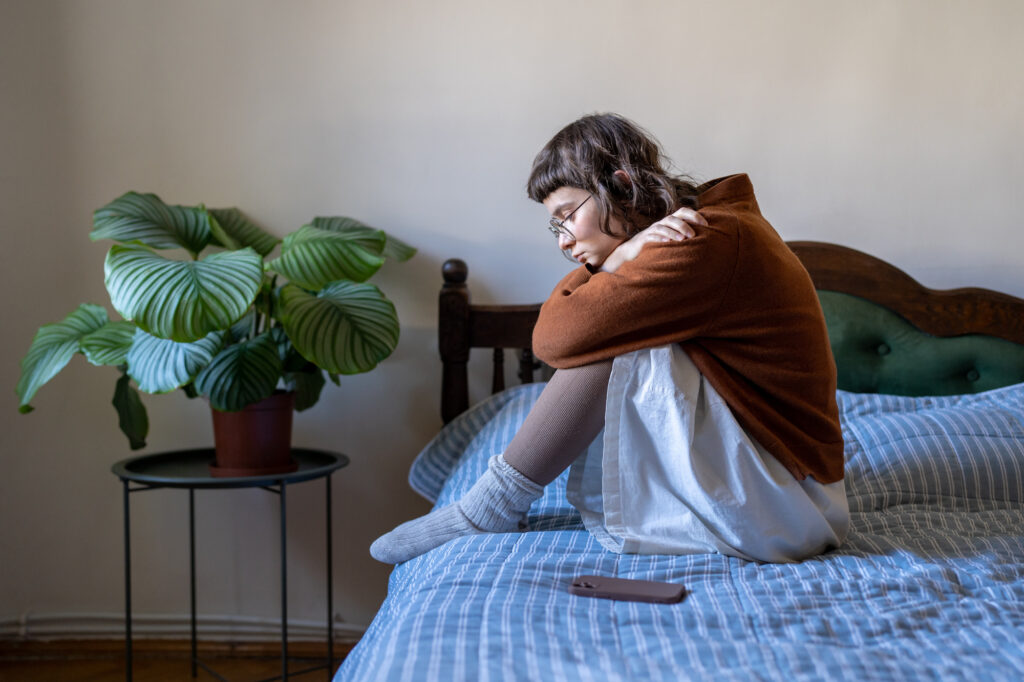Zoloft (sertraline) is a common medication prescribed to treat various mental health conditions, including depression, anxiety, and obsessive-compulsive disorder (OCD) in teens. You might be wondering, Can teens take Zoloft? The answer is yes, but as a parent, it’s essential to understand how Zoloft works, its potential benefits, side effects, and what to expect when your teen is taking this medication. This guide will provide you with all the information you need to make an informed decision about whether Zoloft is the right choice for your teenager.

What Is Zoloft, and How Does It Work?
Zoloft is a type of antidepressant known as a selective serotonin reuptake inhibitor (SSRI). It works by increasing the levels of serotonin, a chemical in the brain that helps regulate mood. By boosting serotonin, Zoloft can help improve mood, reduce anxiety, and manage symptoms of depression or OCD.
Why Might a Teen Be Prescribed Zoloft?
Doctors may prescribe Zoloft to teenagers who are struggling with conditions such as:
- Depression
- Anxiety disorders
- Obsessive-compulsive disorder (OCD)
- Panic disorder
- Post-traumatic stress disorder (PTSD)
When these conditions interfere with a teen’s daily life, relationships, or school performance, a doctor might recommend Zoloft for teens as part of a treatment plan to help them regain control.
How Is Zoloft Taken?
Zoloft usually comes in tablet or liquid form. It’s typically taken once a day, either in the morning or evening. Your teen should take it at the same time each day to maintain a consistent level in their body. Zoloft for teens can be taken with or without food, but it’s essential to follow the doctor’s instructions closely.
How Long Does Zoloft Take to Work?
It can take several weeks for Zoloft to build up in the body and start showing noticeable effects. While some teens may feel improvements within 1-2 weeks, it might take up to 6-8 weeks to experience the full benefits. Patience is crucial, and parents should maintain open communication with their teen and healthcare provider during this period.
Possible Side Effects of Zoloft in Teens
How do Zoloft and teens interact? Are there side effects? Like all medications, Zoloft can cause side effects, including:
- Nausea
- Dizziness
- Dry mouth
- Fatigue
- Changes in appetite
- Insomnia
These Zoloft side effects in teens often lessen as the body adjusts to the medication. However, if they persist or worsen, consult the prescribing doctor. It’s essential to watch for any severe side effects, such as increased thoughts of self-harm or sudden mood changes, and seek immediate medical attention if these occur.
Is Zoloft Safe for Teens?
The FDA has approved Zoloft for treating OCD in children aged 6 and older, but it is also frequently prescribed off-label as an anxiety or depression medication for teens. While many teens tolerate Zoloft well, it’s important to have ongoing discussions with their healthcare provider to monitor progress and adjust the treatment plan as needed.

How to Support Your Teen While They’re on Zoloft
Supporting your teen while they’re taking Zoloft is crucial for their overall well-being. Here are some tips:
Communicate: Encourage your teen to share how they’re feeling, especially any changes they notice.
Monitor: Keep an eye on their mood, behavior, and any potential side effects.
Stay Consistent: Make sure they take their medication as prescribed and attend all follow-up appointments.
Encourage Therapy: Zoloft is often most effective when combined with counseling or therapy.
Can a Teen Stop Taking Zoloft Abruptly?
No, teens should not stop taking Zoloft without consulting their doctor. Stopping suddenly can cause withdrawal symptoms such as dizziness, headaches, or mood swings. If it’s decided that your teen should stop taking Zoloft, the doctor will create a plan to gradually reduce the dosage.
Alternatives to Zoloft for Teens
While Zoloft can be an effective treatment for many teens, it’s important to explore other options that may also help manage mental health. Here are some alternatives:
Therapy: Various forms of therapy, such as cognitive behavioral therapy (CBT), can be highly effective in treating depression and anxiety. Therapy provides a safe space for teens to express their feelings and learn coping strategies.
Lifestyle Changes: Encouraging a healthy lifestyle can significantly impact mental well-being. Regular exercise, a balanced diet, and sufficient sleep are essential. Mindfulness practices, like meditation or yoga, can also promote relaxation and reduce anxiety.
Support Groups: Connecting with peers who share similar experiences can be incredibly beneficial. Support groups provide a sense of community and understanding, helping teens feel less isolated in their struggles.
Natural Supplements: Some families explore natural supplements, such as omega-3 fatty acids or herbal remedies like St. John’s Wort. However, it’s crucial to consult a healthcare professional before starting any supplement to ensure safety and effectiveness.
Family Therapy: Involving the whole family in therapy can strengthen communication and support within the household, helping everyone navigate the challenges of mental health together.
By considering these alternatives, families can find a comprehensive approach to supporting their teen’s mental health, ensuring they receive the care that best suits their individual needs.
How Evolve Can Help
At Evolve Treatment, we understand that navigating mental health challenges can be overwhelming for both teens and their families. Our dedicated team of professionals offers depression treatment for teens with personalized care plans that include therapy, medication management, and family support, ensuring that your teen receives the comprehensive treatment they need. We are committed to creating a safe and nurturing environment where teens can thrive. If you’re ready to take the next step toward improved mental health for your teen, contact us today to learn more about our programs and how we can help your family.
FAQs About Zoloft for Teens
Yes, Zoloft can sometimes cause changes in appetite, which may lead to weight gain or weight loss. It’s important to monitor your teen’s weight and discuss any significant changes with their healthcare provider.
The length of time a teen should stay on Zoloft varies based on their individual needs and how well they respond to the treatment. Some may need to take it for several months, while others might require longer-term use. Always follow the guidance of a healthcare professional.
Zoloft can cause changes in sleep patterns, such as insomnia or feeling sleepy during the day. If sleep issues persist, it’s important to discuss this with the prescribing doctor, who may adjust the dosage or suggest ways to manage these effects.
Certain medications can interact with Zoloft, so it’s essential to inform the healthcare provider about any other medications or supplements your teen is taking. The doctor will check for potential interactions and adjust the treatment plan if necessary.
If your teen misses a dose, they should take it as soon as they remember. However, if it’s almost time for the next dose, they should skip the missed one and continue with their regular schedule. They should not take two doses at the same time.
Zoloft is not considered addictive, but it’s important that your teen follows the prescribed dosage and doesn’t stop taking the medication suddenly. Gradual tapering, under the guidance of a healthcare provider, is necessary to prevent withdrawal symptoms.
Improvements may be gradual, but signs that Zoloft is working can include a better mood, reduced anxiety, improved ability to handle stress, and better participation in daily activities. Regular check-ins with your teen’s doctor can help track progress and adjust treatment if needed.






